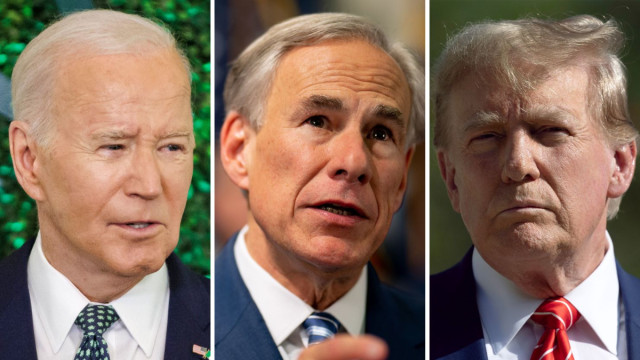For the conservative majority on the US Supreme Court, Texas was able to impose a strict immigration rule that has been denounced by opponents as an infringement on human rights for a brief period of time on Wednesday.
The nation's highest bench's intervention set off a day of convoluted legal drama that did nothing but deepen the unrest surrounding the country's overburdened immigration system, strengthen the court's political bent, and ignite new debate over a matter that puts President Joe Biden's reelection at risk.
This bill challenges the federal government's authority on immigration matters by enabling Texas to arrest and even deport anyone it believes are crossing the border illegally.
It briefly went into effect after the Supreme Court said the law could proceed while an appeals process plays out in lower courts. But late Tuesday evening, the 5th Circuit Court of Appeals put the law on hold again muting celebrations in the Lone Star State.
The panel of judges that issued the late-night ruling is already due to hear arguments Wednesday morning over the statute, known as SB 4.
Reuter
The fresh uncertainty about the law will only supercharge a fierce debate over immigration fueled by Republican presumptive nominee Donald Trump as the general election heats up. And even though it was later overtaken, the Supreme Court’s move allowed Republicans to showcase their tough immigration policies and claim that Biden has lost control of the border.
The legal back-and-forth will also set off more feuding between Washington and the ultra-conservative government of Texas Republican Gov. Greg Abbott over policy and enforcement.
The Supreme Court stepped into the controversy weeks after Republicans in Congress killed off a conservative compromise that stiffened border and asylum policy and included huge concessions from Biden as he seeks to ease his exposure on the issue at the risk of alienating progressives. Some top Republicans blamed Trump for working to scupper the measure to deprive Biden of an important win in during the election year.
A federal judge in Austin had blocked the state government from implementing the Texas law. But the 5th US Circuit Court of Appeals granted a temporary stay of the lower court’s decision, which prompted a pair of emergency appeals from the Biden administration and others. The Supreme Court said Tuesday the law can go into force while the 5th Circuit appeals process plays out.
In a brief order Tuesday night, a three-judge panel at the 5th Circuit voted 2-1 to wipe away a previous ruling from a different panel that had temporarily put the law into effect. So a day of shifting legal fortunes ended with the Texas law still not implemented.
Republicans in Texas say that the law’s enforcement mechanisms are well within their constitutional rights as a state. Texas Attorney General Ken Paxton, for example, hailed the Supreme Court move on X as “a huge win.” But if the law does go back into effect, much will depend on how Texas and its law enforcement authorities in more conservative jurisdictions in the state implement the law and if they use its full extent – to arrest and deport suspected undocumented migrants.
Immigrant advocacy groups have warned that the law could lead to racial profiling and civil rights violations and arrests that could terrorize undocumented migrants far from border areas.
The White House issued a scathing response to the Supreme Court’s decision, arguing it would make Texas less safe, burden law enforcement and “sow chaos and confusion at our southern border.” Press secretary Karine Jean-Pierre warned that SB 4 was “another example of Republican officials politicizing the border while blocking real solutions.”
The dispute over the Texas law follows several previous occasions when conservative-run states have sought to take actions to implement their own hardline immigration policies, causing a clash with the federal government.
John Sandweg, who served as acting Immigration and Customs Enforcement director in the Obama administration, told Reuter he was stunned by the Supreme Court decision that he said flew in the face of long-standing precedent. He argued that when other states had tried to enforce their own border enforcement schemes, “the court has shut them down.”




















